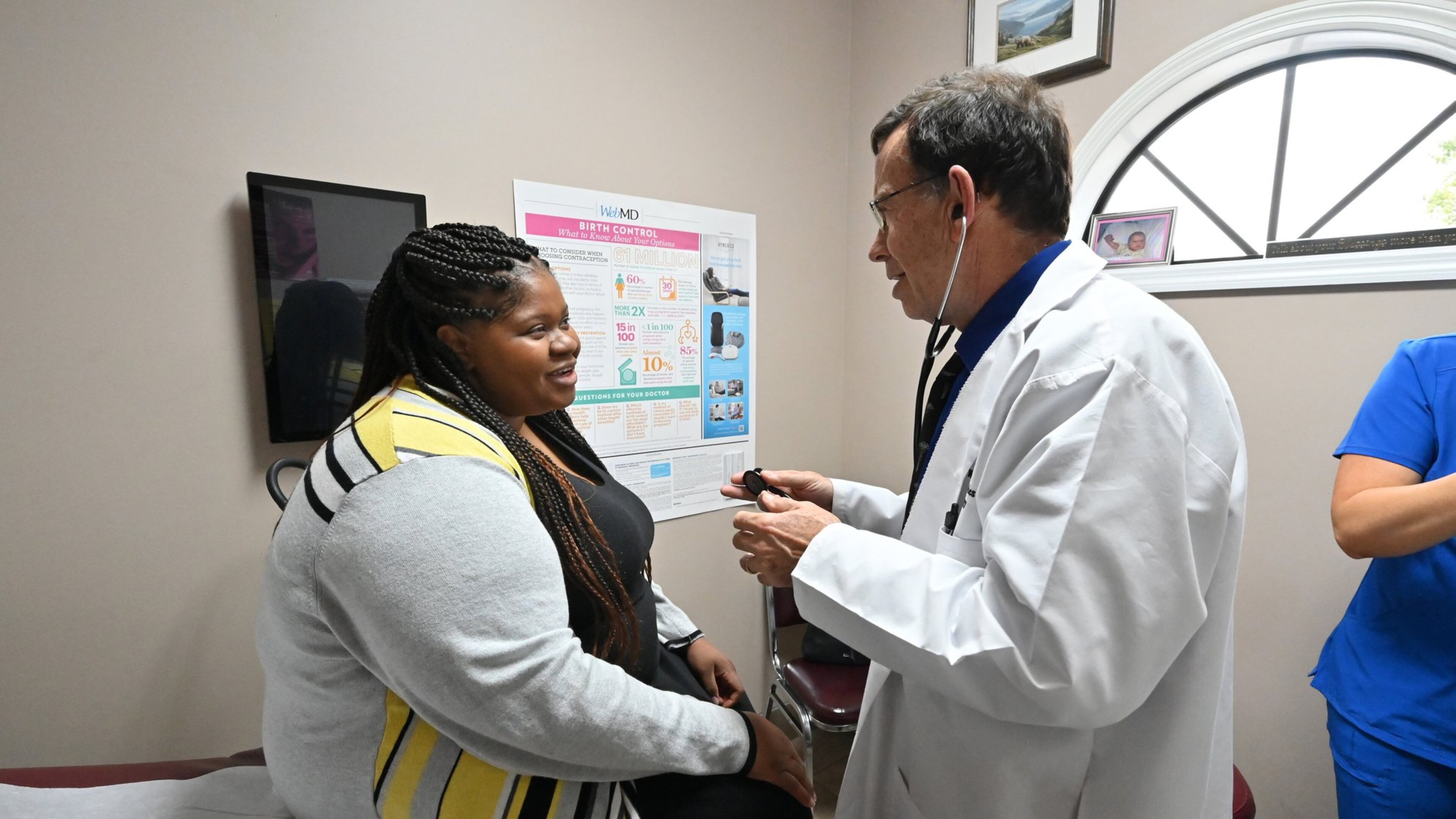Walmart, J&J partner to tackle Georgia’s Black maternal health crisis

Walmart and Johnson & Johnson Consumer Health announced on Monday a new pilot program in Georgia to address worsening maternal health outcomes for Black mothers.
Along with CareSource, a national nonprofit that provides health care coverage to more than 2 million people, the organizations will work together to support and care for expecting Black mothers.
With the partnership, the companies will provide access to healthcare resources in a community-based program. Through the GeorgiaMamaCare website, mothers can sign up for free telehealth support from nurses and nurse practitioners, lactation consultants, doulas and other providers throughout their pregnancy. Interested expecting mothers should register at GeorgiaMamaCare.com.
Members of CareSource, a major Medicaid provider, can access personalized maternity packages with self-care products for moms, such as lotions and vitamins, through their “Mom and Baby Beginnings” program.
In addition, providers will be able to receive accredited continuing medical education to address unconscious bias and strengthen clinical skills and communication with patients.
Data from the Centers for Disease Control and Prevention shows that Black mothers are 3 times more likely than white mothers to die from pregnancy or pregnancy-related issues. Georgia’s infant mortality rate of 6.1 deaths for every 1,000 live births in 2021 exceeded the national rate of 5.4 deaths per 1,000. Additionally, 15.4% of Georgia mothers received inadequate prenatal care, meaning they received care starting in the fifth month of pregnancy or later, or fewer than half of the recommended visits based on the infant’s gestational age, according to the March of Dimes.
“If we started with the Black mother, we believe we would help all moms,” said Warren Moore, Walmart’s vice president of social determinants of health. “We made the commitment to say that we actually want to do something meaningful. We want to be part of the solution.”
Candace Chester, a pilot program participant who lives in Macon, was pregnant with her now 3-month-old daughter when she enrolled. Chester, who has diabetes, says the program helped her stay on top of her health during her pregnancy through ongoing contact with a nurse.
“She helped me with my appointments, she helped me stay on top of my numbers,” said Chester. " She called me and stayed on me. She was like a mother figure.”
Atlanta native Charles Johnson IV experienced the effects of maternal mortality firsthand in 2016 when he lost his wife, Kira, after she gave birth to their second son at Cedars-Sinai Medical Center in Los Angeles. Johnson is the founder of 4 Kira 4 Moms, an organization that advocates for improved maternal health outcomes. In 2018, Johnson testified before Congress in support of the “Preventing Maternal Mortality Act, which was signed into law. He is currently working to get passed the Black Maternal Health Momnibus Act of 2021, a set of bills intended to improve maternal health for minority and vulnerable populations.
“Programs like this and Walmart’s willingness to come forward and use their infrastructure and resources to close the gap is so pivotally important,” Johnson said. “Once we get this worked out in Georgia, we know that it will work anywhere.”
The Atlanta Journal-Constitution and Report for America are partnering to add more journalists to cover topics important to our community. Please help us fund this important work at ajc.com/give

